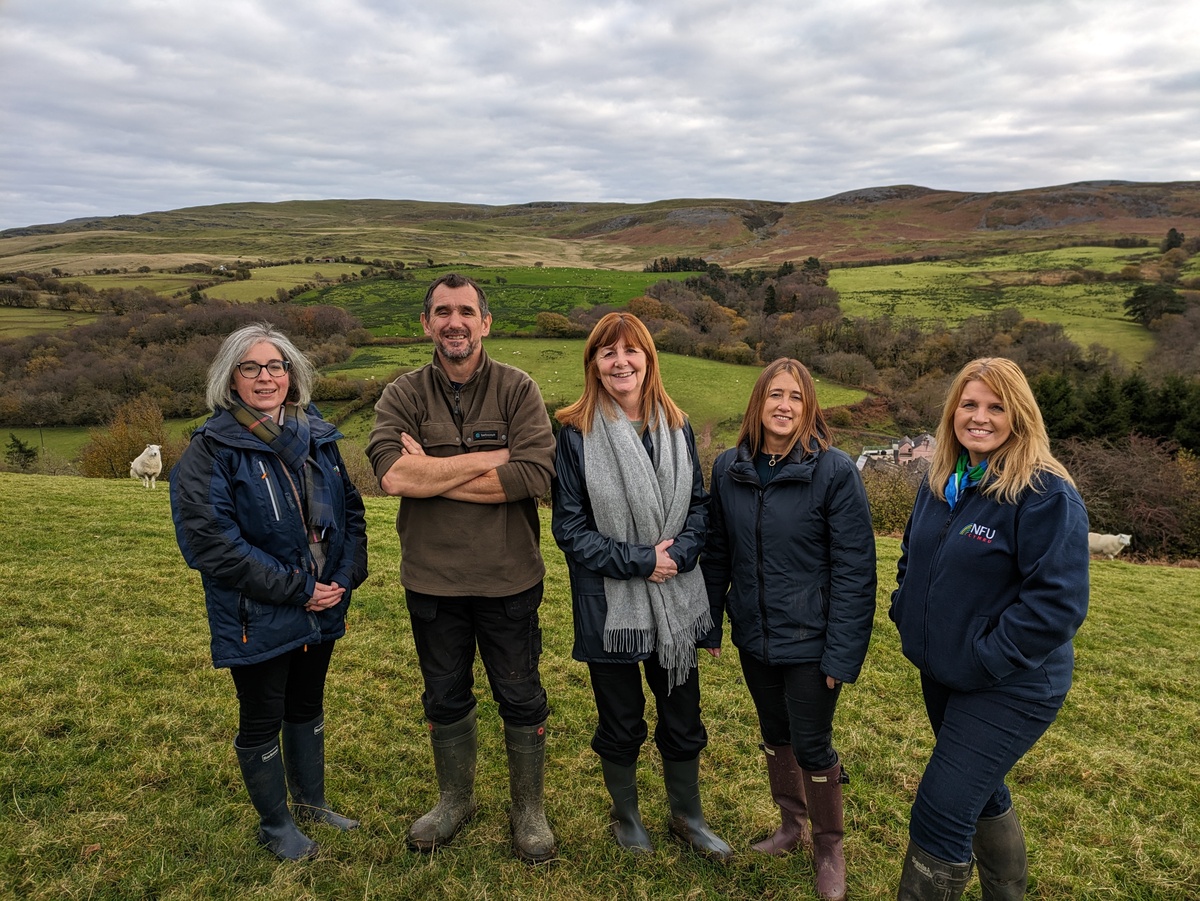At the visit, hosted by farmer Garry Williams and attended by the Minister for Rural Affairs, Lesley Griffiths MS and Liberal Democrat MS Jane Dodds, the specific challenges for farmers with common land at this time of agricultural policy reform were discussed.
Key feature
Almost 10% of agricultural land in Wales is registered common land providing valuable grazing for right holders – farm businesses which are central to the rural economy, particularly in upland areas. Common land is also important to wider society for the ecosystem services and well-being benefits it provides and is a key feature of our cultural heritage, language and traditions.
The visit provided the opportunity to showcase the integral role that commons play on many upland farms as well as the vital contribution that common land grazing makes to positive environmental delivery including carbon storage and sequestration; water quality, regulation and storage; as well as supporting a range of habitats and species alongside food production.
Central to delivery of objectives
The ongoing management of common land is, therefore, central to the delivery of Welsh Government’s climate, biodiversity and wider objectives. Mr Williams was clear, however, that without appropriate support through future agricultural policy the economic position of his business and many other Welsh farm businesses who manage common land is under threat.
Commenting after the meeting, NFU Cymru LFA Board Chair Kath Whitrow said: “We are grateful to the Minister for Rural Affairs, Lesley Griffiths MS and Jane Dodds MS for visiting Blaencennen Farm today to discuss the challenges of farming on common land in the context of the development of the Sustainable Farming Scheme - set to replace the CAP legacy schemes from 2025.
“It is important to recognise that common land is currently included as eligible area for the purposes of the Basic Payment Scheme (BPS) and, in many cases, this makes up over 50% of the claimable area, therefore, making an essential contribution to the viability of these farm businesses.
Economic viability threatened
“Without appropriate policy interventions and support, it is clear the economic viability of Welsh farm businesses who farm in upland areas and manage common land is threatened. It is, therefore, vital that the new scheme works for common land right holders with full access across the proposed universal, optional and collaborative tiers of support.”
Host farmer, Garry Williams said: “We were very pleased that the Minister recognised the important role that the Sustainable Farming Scheme has to play in underpinning farming on common land at the visit. Proactive management by grazing is central to the environmental condition of common land and this can only occur in future if farm businesses are viable.
Baseline stability
“I would like to thank the Minister and Jane Dodds for taking the time to visit Blaencennen at this pivotal time for Welsh farming. Farmers are facing challenging times with inflationary pressures and escalating costs. The role of the BPS in providing stability to farm businesses is as important now as it has ever been, as we transition to the SFS the need for common land to continue to be eligible for baseline stability support through the universal layer of the scheme cannot be overstated.”
Commenting, Jane Dodds MS said: “It was a pleasure to visit Blaencennan farm alongside the Rural Affairs Minister for Wales Lesley Griffiths MS and representatives from NFU Cymru.
“It is vital that our farmers here in Wales are listened to and supported during what is a very difficult time for the agricultural industry. Time and time again the concerns of farmers are falling on closed ears and the current fiasco surrounding the Habitat Wales Scheme is further evidence of this. Low compensation for farmers, in-accurate mapping data on farmland and endless jargon are just some of the many errors that must be fixed before the scheme can be launched. If we are being serious about creating a sustainable farming model in Wales, then we must above all else ensure that those who are feeding our nation are given the time and voice to contribute.”

